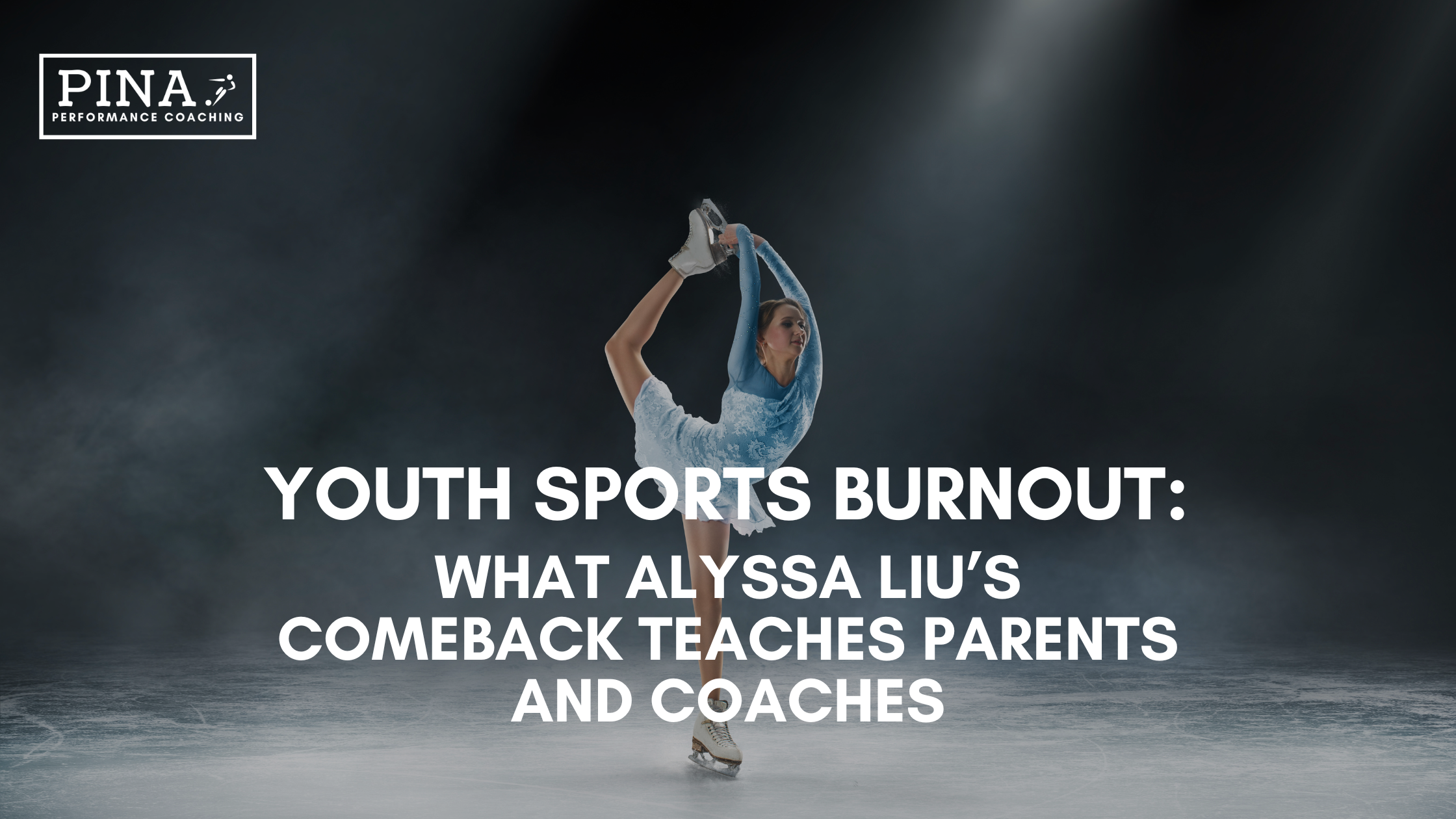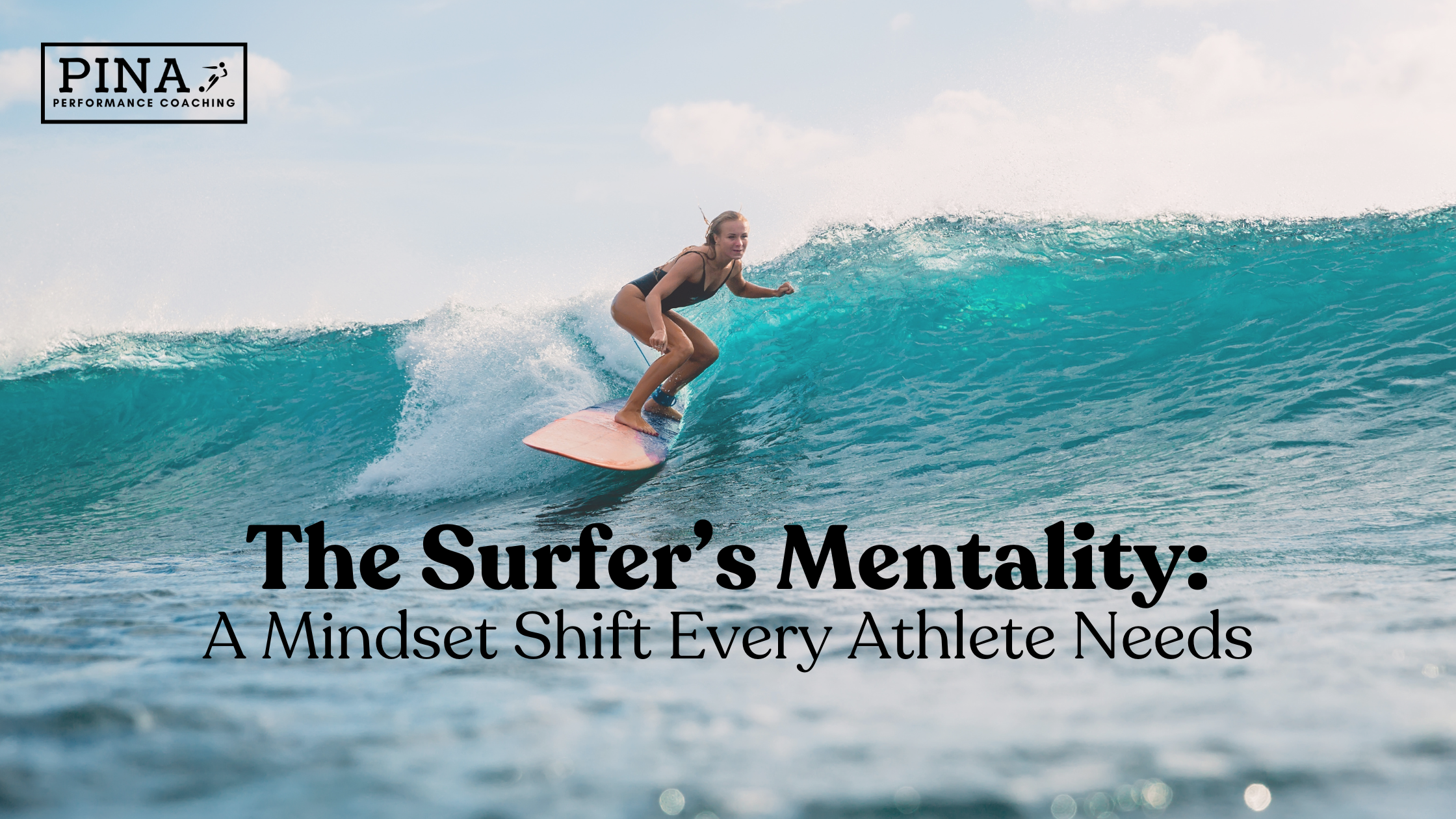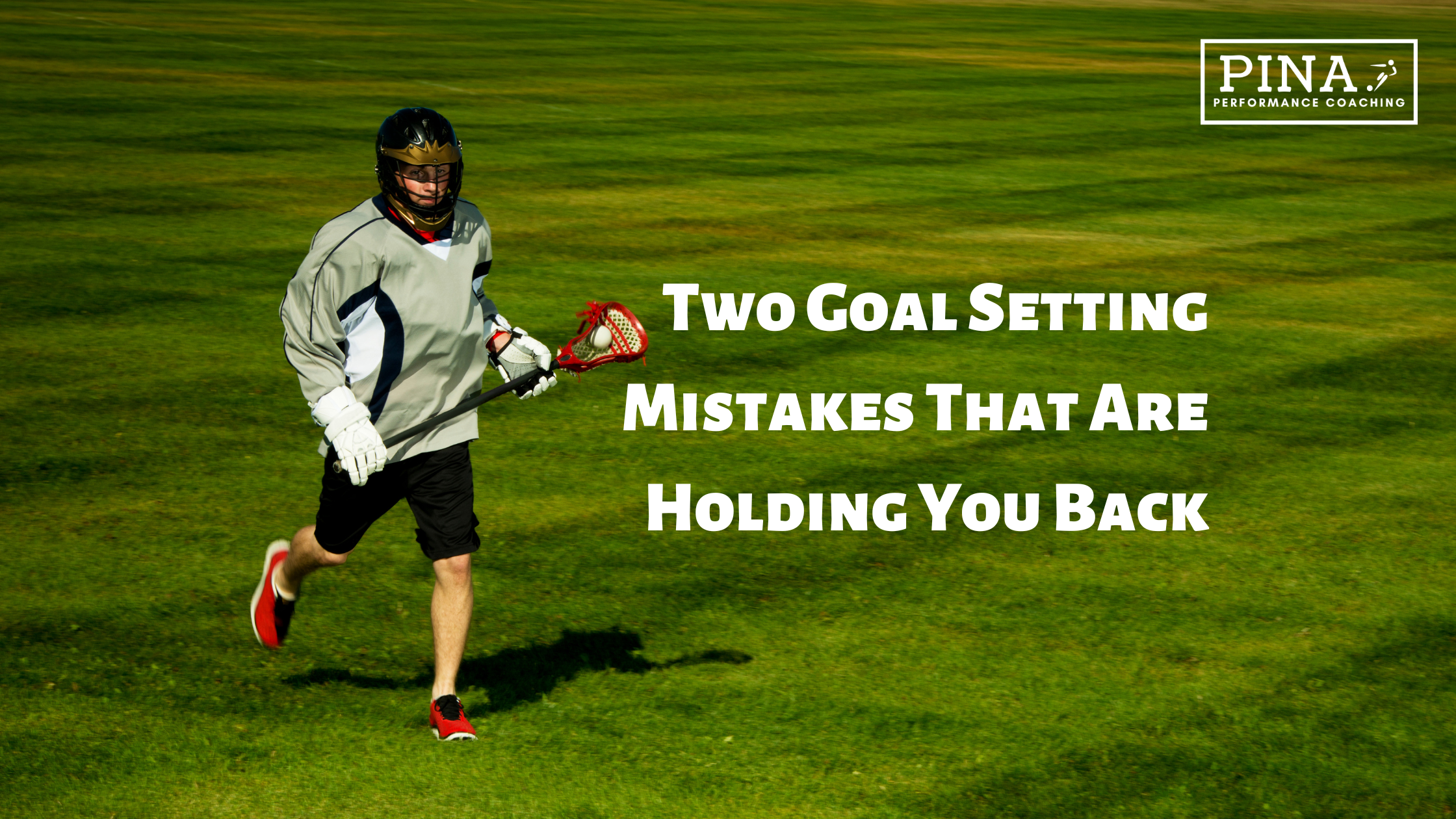Learn more about Sport Psychology...
Sport psychology and mental skills training tips for athletes, coaches, parents, or anyone looking to elevate their mental game.
Youth Sports Burnout: What Alyssa Liu’s Comeback Teaches Parents and Coaches
Youth sports burnout is rising among young athletes. Learn the signs of burnout in athletes, how to prevent mental burnout in sports, and what Alyssa Liu’s comeback teaches parents and coaches.
How to Silence Your Inner Critic and Elevate Your Performance
Learn how to silence your inner critic and elevate your athletic performance. Our 3-step process helps athletes boost confidence, perform consistently, and enjoy their sport again.
How to Stop Worrying Before Games
Learn how to stop worrying before games with 3 mindfulness reminders that help athletes stay calm, confident, and focused. Discover how mindfulness boosts performance and reduces anxiety.
Why Even the Best Athletes Need a Mental Performance Coach
Even elite athletes struggle with confidence, pressure, and nerves. Discover why mental performance coaching is essential for building mental toughness, focus, and confidence in sports—and how you can start today.
The Surfer’s Mentality: A Mindset Shift Every Athlete Needs
Discover how the “Surfer’s Mentality” can transform the way athletes approach pressure, performance, and mistakes. In this blog, we break down a simple but powerful mindset that helps athletes stay present, play freely, and build lasting confidence.
Advice to Athletes: Be a Goldfish
Are you an athlete struggling with letting go of mistakes and staying focused during competitions? Inspired by Ted Lasso, the concept of having a goldfish-like memory can revolutionize your game. Learn how a short-term memory can boost your performance, keep you present, and help you bounce back quickly after setbacks. Dive into our latest blog to uncover the mental reset techniques that will transform your approach to sports. Ready to train your mind like a goldfish? Click to read more and start your journey to peak performance today!
Conquering the Fear of Failure in Sports
Are you tired of fear holding you back from reaching your athletic goals? Discover how to overcome the fear of failure and unleash your true potential in our latest blog. Learn why fear hinders your performance, how to embrace challenges, and why seeking guidance is key to your success. Don't let fear dictate your destiny – take the first step toward greatness today. Read the full blog now!
Breaking Through Mental Blocks: A Guide for Parents of Athletes
Is Your Athlete Struggling Mentally?
As a parent, you sense when something's off with your athlete—dips in performance, timid plays, or overwhelming pre-game nerves. But what if the issue isn't just physical? Dive into our latest blog to uncover the signs of mental blocks in athletes, understand their root causes, and discover actionable ways to support your child's mental game. Don't let mental hurdles sideline your athlete; empower them to perform at their best with insights from Pina Performance Coaching.
Read the Full Blog to Unlock Peak Performance for Your Athlete!
Maximizing Athletic Performance Using Technology
Discover how technology is revolutionizing the world of sports! From advanced tracking tools to performance metrics, athletes are harnessing the power of tech to achieve peak performance. But is it always a game-changer?
Dive into our blog to explore the pros and cons of integrating technology into your training regimen. Find out how personalized insights can propel you toward success.
Why Your Game Performance Doesn’t Match Practice
So often athletes excel in practice but falter during games. They feel frustrated and wonder how to bridge this gap. Extra practice isn't the solution; the problem lies in their mindset.
In this blog, we delve into this common mental block that athletes face and how mental skills training can overcome them. I walk you through the exact process I take my clients through to ensure that their performance on game day matches what they bring to practice.
Ready to transform your game? Dive into this blog for actionable insights on how to unlock your full potential on the field.
Girls & Women in Sports
As a woman in sports and a former female athlete i recognize the incredible value that being an athlete has added to my life. I learned so many skills that I may not have otherwise learned if I wasn’t an athlete.
I also recognize that women and girls in sports face their own unique set of challenges and specifically mental challenges that their male counterparts might not.
The 2 Sides of Performance Anxiety
Even though performance anxiety is extremely common in athletes, I don’t always see it being addressed in an effective way.
Because there are two sides to performance anxiety that need to be addressed. What’s going on in the mind AND what’s going on in the body.
How to Stop Worrying About What Your Coach is Thinking
How much time do you spend thinking about what other people are thinking about you?
I like to call this being stuck in someone else’s head. Instead of focusing on yourself, you’re in their head trying to figure out what they are thinking about you.
This is not the place you want to be.
In this blog I walk you through the exact steps that will get you out of the habit of worrying what your coach (or anyone else) is thinking of you.
Sport Psychology Myth Busting
Sport psychology is rapidly growing, and for good reason too. It’s no longer about just practicing more or putting in more reps. We’ve finally recognized that the mental side of sport plays a huge part in the way athletes perform and the results they get.
Just in the past five years more and more college and professional teams are hiring mental performance coaches to work with their athletes. The beauty of this is that it not only helps athletes perform better but it also helps them outside of sport as well!
But even with all of this growth in sport psychology there are still some assumptions that I want to make sure we clear up.
What I Wish I Knew As An Athlete
When I was an athlete I had no idea that there was an entire aspect of my game I was leaving out. All of the physical aspects were dialed in as best I could.
But there was one area of my game I completely left out. I dedicated 0% of my time to mental training.
As a sport psychology professional I can now reflect back and see what I didn’t know when I was an athlete.
Normalizing Emotions in Sport
How often have you heard; “show no emotion”, “rub some dirt on it”, “toughen up”, “stay neutral”, etc.?
And, how does that advice help you when you’re feeling upset that the other team scored? Or when you’re feeling anxious before the championship game?
I know that advice is not helpful when emotions inevitably arise.
Actually emotions are normal! Especially when you’re competing and you want to win. When you’ve trained for months. You’ve sacrificed to put more time into your sport. OF COURSE you are going to have emotions come up in competitions.
Staying Motivated This Summer
In the summertime it can be so much harder to have the motivation to do the little things. Summertime should be fun. You should enjoy yourself and relax.
However, just like during the school year, you still need a good balance. But instead of the balance between school and sport, it’s between fun and sport.
Which is why this blog walks you through my top 5 tips to staying motivated throughout the summer.
One Thing ALL Great Athletes Have
There’s one thing that ALL great athletes have.
One thing that will allow you to know:
Exactly what to visualize to show up with confidence. How to manage pre-game nerves. What pumps you up and gets you in your zone. How to respond when the ref makes a bad call. What to do when you’re focusing on the college coach in the crowd. How to rest and recharge your mind and body in between games.
Handling Postseason Pressure
There is so much more weight put on the postseason. And I get it. Everything you’ve done throughout the season has added up to get you to this point. You don’t want your season to end. You want to end the season celebrating with a trophy in your hands.
But, this added pressure makes you feel like you’re playing a completely different game. Even though it's the same game you were playing a month ago.
Two Goal Setting Mistakes That Are Holding You Back
I don’t think I’ve ever met an athlete that doesn’t have a goal for themselves.
Whether it’s getting recruited, ranking higher, qualifying for a certain event, getting a new PR, learning a new skill. You name it, athletes are aiming to reach it.
Goals are so important to provide direction and motivation.
But there are two common things I see that hold athletes back from achieving their goals.
Schedule a consultation.
Schedule a consultation to discuss your goals and what it looks like to work together.




















